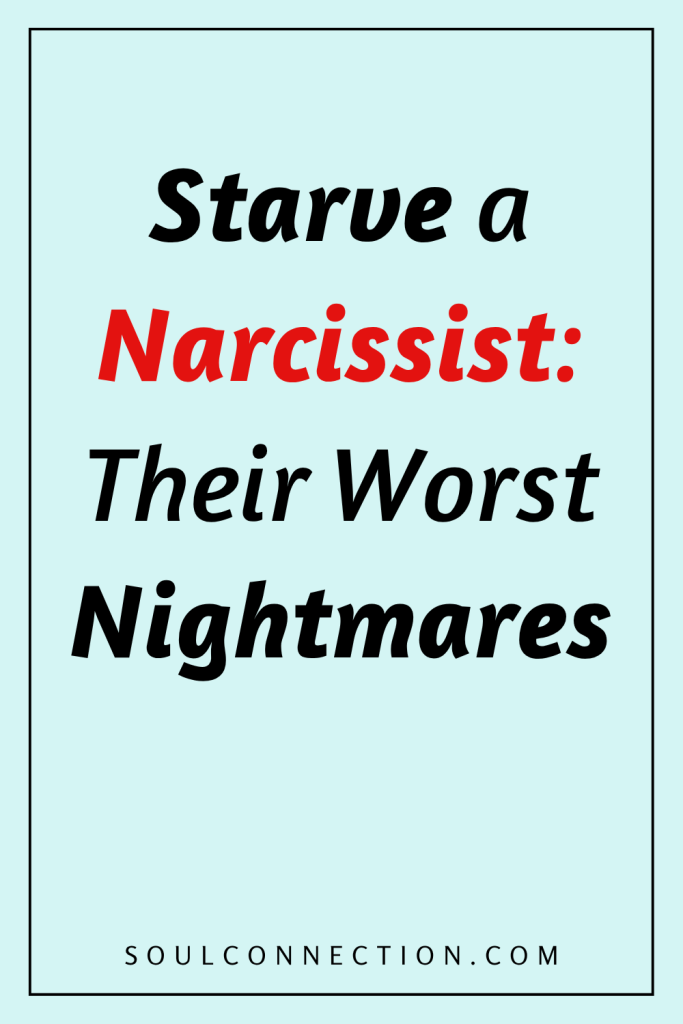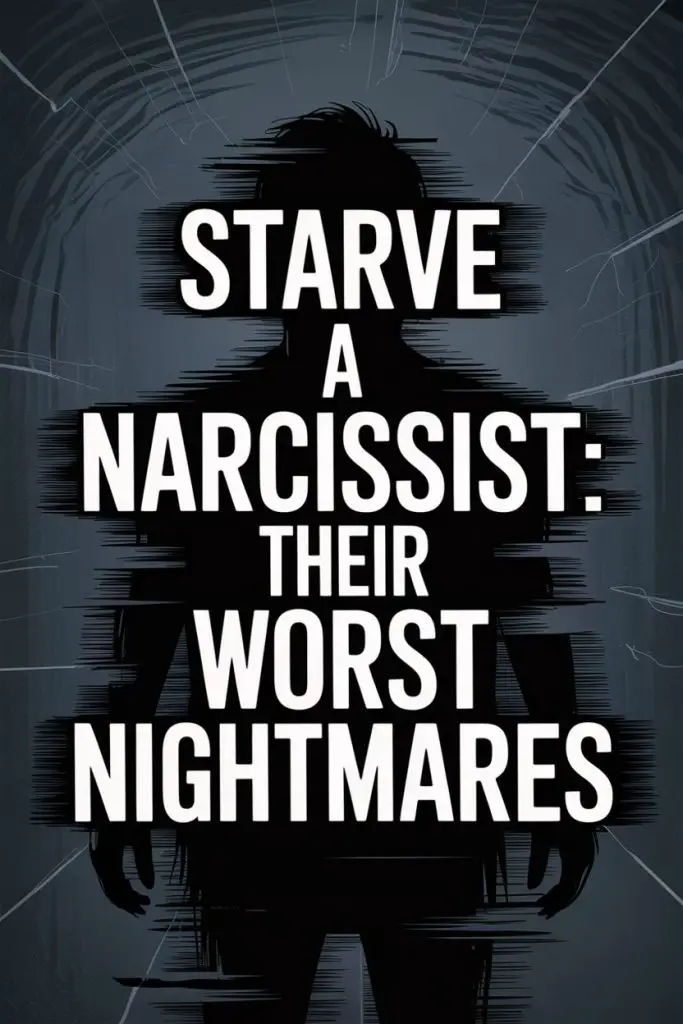When it comes to narcissists, you’re never short of drama, self-importance, or the kind of confidence you wish you could bottle—mainly to throw far, far away.
But if you’ve spent time dancing around their egos, you’ve probably wondered: What actually happens if you stop giving them what they crave?
Spoiler: It’s not pretty. But it is empowering.
Here’s how to quietly flip the script and watch a narcissist squirm—without losing your own sanity.
What Narcissists Crave
Narcissists are fueled by attention, validation, and control. This isn’t just a preference; it’s their lifeblood. Think of them as emotional vampires—except garlic won’t help you, and they never sparkle in the sun.
Compliments, arguments, your frustration, your tears, your victories—if it’s about them, they want it. Even negative attention works just fine, thanks.
They are experts at making you feel responsible for their moods.
Your frustration? Delicious. Your adulation? Even better. Indifference? That’s their kryptonite.
Why Starving Works
Attention is to narcissists what oxygen is to the rest of us. If you cut off their supply, you’re not only protecting your peace—you’re shaking the very foundation of their self-worth.
Turning off the tap isn’t about being cruel. It’s about survival—yours. And yes, it’ll make a narcissist deeply uncomfortable, if not outright panicked.
The Silent Treatment, Upgraded
Forget the cold, calculated “silent treatment” narcissists love to use on you. We’re talking about a strategic shift in your focus.
No more chasing their approval. No more explaining yourself five different ways. No more jumping at every manipulative text.
They text you “?” at 2am? That message can wait until the sun is up. Or, you know, never.
Minimal responses, delivered with the enthusiasm of a Monday morning. Watch how quickly they notice the shift. Narcissists are allergic to being ignored.
Indifference: The Ultimate Insult
Empathy and drama tend to be your go-tos in relationships—because you’re human. But narcissists read empathy as an invitation and drama as applause.
Indifference, on the other hand, is a red card. It’s the social equivalent of ghosting someone at a party, even if you’re sharing a couch.
React less. Yawn at their self-congratulation. Don’t let them bait you into arguments about the latest “injustice” that’s befallen their golden self.
Boundaries That Bite
Nothing sends a narcissist into a tailspin like an unmovable boundary. Try saying something like, “I’m not comfortable with that,” and then…just stick with it.
Prepare for fireworks. They’ll guilt-trip, gaslight, and pull out every classic move in their playbook. The key is to expect it—you’re not losing your mind, you’re simply not cooperating anymore.
Consistency is your best friend here. Move that boundary a millimeter? They’ll notice and bulldoze right over it. Stand your ground, and watch them fidget.
Stop Explaining Yourself
Ever try to justify your feelings to a narcissist? You may as well sing opera to a brick wall.
Explaining yourself is an open invitation for them to dissect, dismiss, or twist your words. Try brevity: “I’m not discussing this further.”
It’s beautifully boring, and narcissists hate being bored. They want to play chess; you’re handing them a Connect Four board and walking away.
No More Audience Participation
Narcissists love a crowd—even if it’s an audience of one.
They’ll go to any lengths to make sure you’re watching their performance. Lavishing praise, issuing dramatic sighs, or recounting their 12th tale of workplace heroism.
You can sit through these monologues without applause. Glance at your phone. Change the subject to something utterly mundane. Refuse to play the supporting role in their one-man show.
Their ego will bruise. They may even accuse you of being “distracted” or “cold”. Take this as confirmation you’re on the right path.
Stop Fixing Everything
Resist the urge to play savior. Narcissists thrive on dragging you into their manufactured crises, assigning you the thankless role of perpetual problem-solver.
You’re not Google. You’re not tech support. You’re not their emotional janitor.
Respond with, “I’m sure you’ll figure it out.” Watch the confusion (and panic) set in. They’re not used to people opting out of their chaos.
Withhold the ‘Supply’—All of It
Emotional supply doesn’t just mean compliments. It’s any reaction that feeds their sense of importance.
Arguing, defending, even sarcastic comebacks—they’ll feast on all of it. The less you give, the more they flounder.
Try neutrality. Think Switzerland, but with better snacks and boundaries. It’s not about being passive; it’s about refusing to play the game.
Expect the Pushback
Don’t be fooled: as you starve the narcissist, expect a last-ditch effort to reel you back in.
Love-bombing, guilt trips, sudden “epiphanies”—it’s all part of the program. This is often where people cave.
Resist. You’re not being mean; you’re choosing your mental health.
When They Escalate
Some narcissists will up the ante when the supply runs dry. Think: dramatic accusations, emotional blackmail, or smearing your reputation like butter on toast.
Stay calm. Document interactions if needed. Share what’s happening with people you trust.
You’re not alone. There’s no shame in looping in a therapist—or a mate with a good ear and strong tea.
The Power of Detachment
Emotional detachment isn’t about becoming a robot. It’s about recognizing the difference between compassion and self-sacrifice.
You can care about someone’s struggles without being their emotional hostage. Detachment gives you breathing room and clarity—two things a narcissist can’t stand.
Don’t Expect Gratitude
This path rarely ends with a narcissist saying, “You were right, I’ve seen the light, let’s be healthy now!”
More often, you’ll get sulking, blame, or sudden silence. That’s okay. Starving a narcissist is about reclaiming your energy, not fixing theirs.
No Contact: The Nuclear Option
Sometimes, the only way to starve a narcissist is to cut contact entirely. Block, delete, mute—whatever it takes.
If you share kids or a workplace, keep communication businesslike and brief.
Every interaction is a potential feeding ground, so stay vigilant. Your peace is worth it.
What Healing Looks Like
The best revenge isn’t revenge at all; it’s living well, laughing at bad jokes, and sleeping deeply—no 2am text marathons needed.
As you stop tending to their ego, you’ll find your self-esteem returning in cautious waves.
You’ll have more energy. Food tastes better. Sunsets look less like Instagram filters and more like…well, sunsets.
If you stumble, don’t beat yourself up. Narcissists are pros, and old habits die hard. Try again tomorrow.
Reclaiming Your Light
Starving a narcissist isn’t about hurting them—it’s about healing you.
Nobody deserves to spend their life as a permanent audience member in someone else’s self-obsessed drama. You can walk off their stage.
Tonight, try one small shift: answer a message late, say “no” to a demand, or set a tiny boundary. Notice how it feels.
That’s the beginning of something beautiful: the end of their nightmare, and the start of your freedom.


